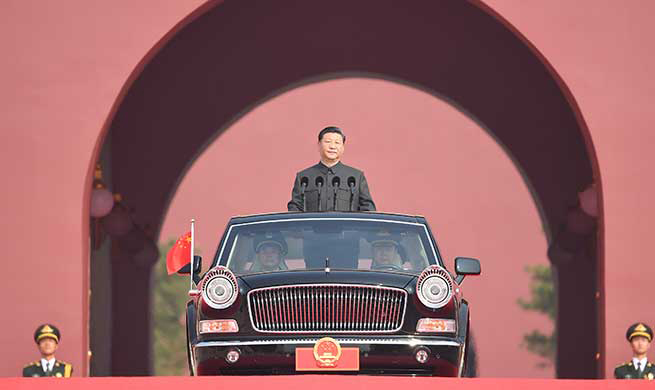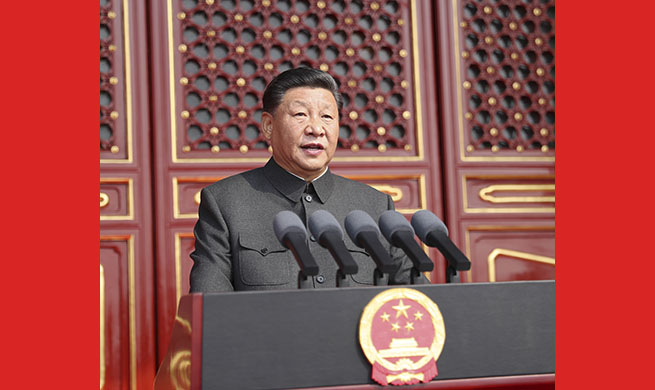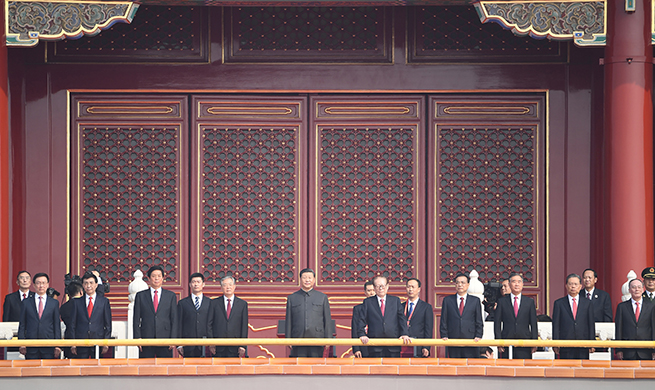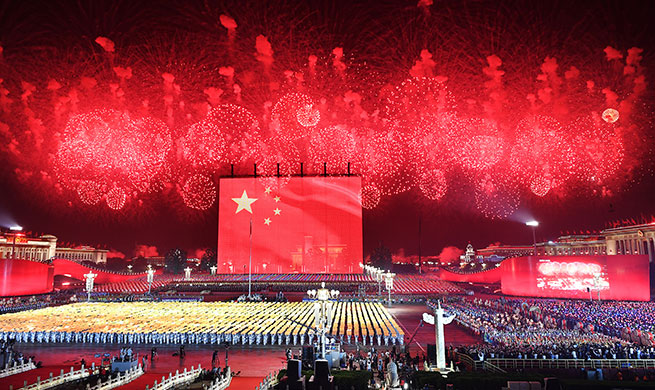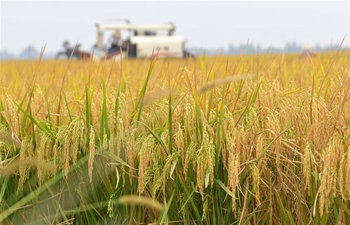by Dana Halawi
BEIRUT, Oct. 2 (Xinhua) -- Local experts expressed different views about the impact of a measure by Lebanon's Central Bank on Tuesday to secure dollars for the Lebanese banks.
The official fixed exchange rate is 1,507 Lebanese pounds to 1 U.S. dollar, but the economic slowdown and the drop in cash injections from the Lebanese abroad have reduced the central bank's foreign currency reserves, leading to a shortage in dollars for businesses and individuals.
The demand for dollar has created a parallel market where 1 dollar is being sold at 1,600 Lebanese pounds, higher than the official price.
As a result, importers of some basic products such as fuel, medicine and wheat reported great losses because they have been buying their products from importing companies by paying in dollars while they are selling them in Lebanese pounds.
Meanwhile, more and more people had to resort to the black market because of insufficient dollars available in banks.
Therefore, the central bank said in a statement that it is to organize funding for imports of fuel, wheat and medicines.
"Banks that open documentary credits exclusively for the importation of petroleum products (gasoline, gas), wheat or medicines may request the central bank to insure the value of such credits in U.S. dollars provided that they comply with the required conditions," the statement said.
Dan Azzi, advanced leadership fellow at Harvard University, told Xinhua that the measure is good and bad at the same time.
"This is a good step because it will remove the pressure on the pricing of products that are essential for the country, but the bad news is that it is implicitly saying anything other than these commodities is not covered," Azzi said.
He believes this is a wise decision as the central bank will ration its reserves. Even if it's not the ideal situation, such step is necessary in the absence of a government able to take courageous decisions.
Azzi gave an example by saying that the government should have put taxes on people who buy SUVs for over 100,000 dollars or those who spend their salaries abroad for vacations.
He said that this shortage in dollars may encourage the Lebanese to alter their behaviors.
The expert added that the main problem now is that the country's manufacturing capabilities have been destroyed over the past years.
Azzi argued that the best solution is to adopt short and long term plans, including an emergency plan to deal with the shortages of foreign currencies and a larger plan aimed at generating dollars into Lebanon by encouraging productive sectors.
Adnan Rammal, representative of the trade sector in the Economic and Social Council, said that the move is not in favor of merchants who will resort to a parallel market where the price of dollar will not be fixed but determined according to the supply and demand.
"This move will prompt importers who are in need of the U.S. dollar to secure the currency from the parallel market which will lead to an increase in the demand of the dollar and the increase in its price vis a vis the Lebanese pound," he said.
Rammal also added that this will lead to a drop in the purchasing power of the Lebanese because the parallel market will then impact the price of 60 percent of imported products.
"Prices of imported products will increase because of the difference in the prices of currencies paid by the merchants," he said.
Lebanon is known to be an importing company and the country's trade deficit for the first five months of 2019 stood at 7.32 billion dollars.










